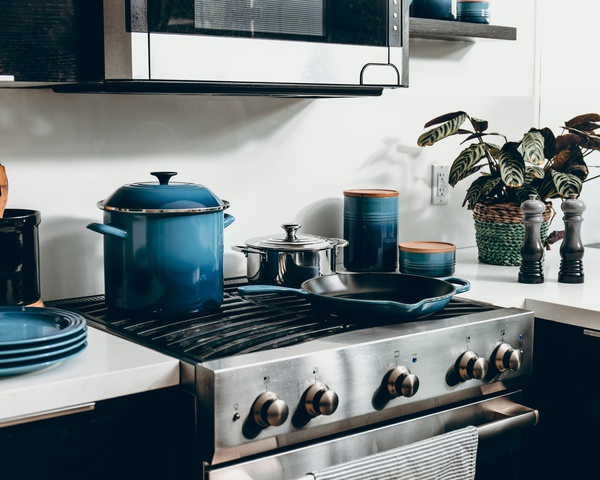
When it’s time to replace your oven, most homeowners default to replacing it with a model that runs on the same fuel source: electricity or gas. Less than half of US homes can use gas; the rest use electricity. Even when homeowners can use a gas stove, don’t overlook the benefits of electric models.
First, a disclaimer. Industry researchers have repeatedly documented how widely individual models perform, whether gas or electric. That makes it difficult to make broad recommendations about stovetops based solely on fuel type. Make sure you chat with a Max’s expert to learn more about the features of specific options.
Related: Energy Savings from High-Efficiency Appliances
Here’s how gas and electric stoves stack up across four key tests.
A watched pot never boils, and that’s never more true than when busy northern Michigan families are trying to get dinner going. Both gas and electric stovetop manufacturers have pushed to install larger burners to boil water faster.
Which is faster? Electric stoves are much quicker than gas. While the exact time varies by model, electric stoves can usually boil 6 quarts of water in 15 minutes compared to the 25 minutes gas ranges take.
Discerning home chefs know that delicate sauces require a consistent, reliable simmer. A controllable heat source is important for preparing many dishes, with simmering levels vital to prevent burning or scorching.
The Simmer Winner: It’s electric, and it makes sense. Because electric stovetops provide more control over energy input and make direct contact with pans, there are fewer variables and more immediate feedback on temperature.
Gas oven vs electric debates tend to overlook how evenly heat is distributed. Oven heat performance varies by model, fuel source, and age; older, grimy ovens deliver more inconsistent heat than newer models that don’t have years of hard work behind them.
The Baking Winner: Gas ranges are slightly more consistent than electric stoves, although it’s by a slim margin. More gas ranges earn Excellent ratings for baking, mostly due to fewer cold spots and consistent heat. That may be a benefit of the slightly slower heat-up time delivered by gas ranges.
Surprisingly, this one isn’t even close. Gas stoves consistently underperform in broiling tests, with well over half of electric stoves earning top marks from Consumer Reports. Only about 15 gas ranges earned Very Good ratings. Gas stoves deliver less consistent contact with the cooking surface, which appears to have a consequential impact on broiling.
The top choice is electric by a mile.
Research shows gas stoves emit nitrogen dioxide and harmful volatile organic compounds (VOCs), reducing indoor air quality. During a 2019 observational study, researchers found that kids living in homes with gas stoves are 42% more likely to have asthma. Other data show increased levels of nitrogen oxides, carbon monoxide, and a known carcinogen, formaldehyde.
Always use an exhaust fan when preparing food on a stovetop, and keep your kitchen well-ventilated.
A 2021 survey showed prospective homebuyers prefer gas stoves, with 51% saying they’d rather cook with gas. Only about 39% said they preferred electric, with the remaining respondents having no preference. In light of new research on indoor air quality and climate change, homebuyers may have a different attitude on the electric vs. gas stove debate in the years ahead.
Max’s Service has helped generations of northern Michigan families find the right home appliances, especially in the kitchen. See what decades of experience and a focus on quality and service do for your appliance buying experience. Call us today at (231) 947-6830 or send us a note!
Share on Twitter Share on Facebook
2026
2025
2024
2023
2022
2021
2020
2017
Comments
There are currently no comments
New Comment